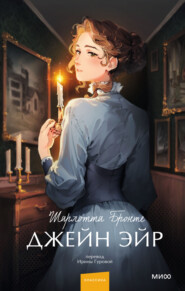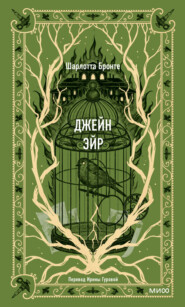По всем вопросам обращайтесь на: info@litportal.ru
(©) 2003-2024.
✖
Shirley
Настройки чтения
Размер шрифта
Высота строк
Поля
“Bah! I hate ugliness and delight in beauty. My eyes and heart, Yorke, take pleasure in a sweet, young, fair face, as they are repelled by a grim, rugged, meagre one. Soft delicate lines and hues please, harsh ones prejudice me. I won’t have an ugly wife.”
“Not if she were rich?”
“Not if she were dressed in gems. I could not love – I could not fancy – I could not endure her. My taste must have satisfaction, or disgust would break out in despotism, or worse – freeze to utter iciness.”
“What! Bob, if you married an honest, good-natured, and wealthy lass, though a little hard-favoured, couldn’t you put up with the high cheek-bones, the rather wide mouth, and reddish hair?”
“I’ll never try, I tell you. Grace at least I will have, and youth and symmetry – yes, and what I call beauty.”
“And poverty, and a nursery full of bairns you can neither clothe nor feed, and very soon an anxious, faded mother; and then bankruptcy, discredit – a life-long struggle.”
“Let me alone, Yorke.”
“If you are romantic, Robert, and especially if you are already in love, it is of no use talking.”
“I am not romantic. I am stripped of romance as bare as the white tenters in that field are of cloth.”
“Always use such figures of speech, lad; I can understand them. And there is no love affair to disturb your judgment?”
“I thought I had said enough on that subject before. Love for me? Stuff!”
“Well, then, if you are sound both in heart and head, there is no reason why you should not profit by a good chance if it offers; therefore, wait and see.”
“You are quite oracular, Yorke.”
“I think I am a bit i’ that line. I promise ye naught and I advise ye naught; but I bid ye keep your heart up, and be guided by circumstances.”
“My namesake the physician’s almanac could not speak more guardedly.”
“In the meantime, I care naught about ye, Robert Moore: ye are nothing akin to me or mine, and whether ye lose or find a fortune it maks no difference to me. Go home, now. It has stricken ten. Miss Hortense will be wondering where ye are.”
Chapter X
Old Maids
Time wore on, and spring matured. The surface of England began to look pleasant: her fields grew green, her hills fresh, her gardens blooming; but at heart she was no better. Still her poor were wretched, still their employers were harassed. Commerce, in some of its branches, seemed threatened with paralysis, for the war continued; England’s blood was shed and her wealth lavished – all, it seemed, to attain most inadequate ends. Some tidings there were indeed occasionally of successes in the Peninsula, but these came in slowly; long intervals occurred between, in which no note was heard but the insolent self-felicitations of Bonaparte on his continued triumphs. Those who suffered from the results of the war felt this tedious, and, as they thought, hopeless struggle against what their fears or their interests taught them to regard as an invincible power, most insufferable. They demanded peace on any terms. Men like Yorke and Moore – and there were thousands whom the war placed where it placed them, shuddering on the verge of bankruptcy – insisted on peace with the energy of desperation.
They held meetings, they made speeches, they got up petitions to extort this boon; on what terms it was made they cared not.
All men, taken singly, are more or less selfish; and taken in bodies, they are intensely so. The British merchant is no exception to this rule: the mercantile classes illustrate it strikingly. These classes certainly think too exclusively of making money; they are too oblivious of every national consideration but that of extending England’s – that is, their own – commerce. Chivalrous feeling, disinterestedness, pride in honour, is too dead in their hearts. A land ruled by them alone would too often make ignominious submission – not at all from the motives Christ teaches, but rather from those Mammon instills. During the late war, the tradesmen of England would have endured buffets from the French on the right cheek and on the left; their cloak they would have given to Napoleon, and then have politely offered him their coat also, nor would they have withheld their waistcoat if urged; they would have prayed permission only to retain their one other garment, for the sake of the purse in its pocket. Not one spark of spirit, not one symptom of resistance, would they have shown till the hand of the Corsican bandit had grasped that beloved purse; then, perhaps, transfigured at once into British bulldogs, they would have sprung at the robber’s throat, and there they would have fastened, and there hung, inveterate, insatiable, till the treasure had been restored. Tradesmen, when they speak against war, always profess to hate it because it is a bloody and barbarous proceeding. You would think, to hear them talk, that they are peculiarly civilized – especially gentle and kindly of disposition to their fellow-men. This is not the case. Many of them are extremely narrow and cold-hearted; have no good feeling for any class but their own; are distant, even hostile, to all others; call them useless; seem to question their right to exist; seem to grudge them the very air they breathe, and to think the circumstance of their eating, drinking, and living in decent houses quite unjustifiable. They do not know what others do in the way of helping, pleasing, or teaching their race; they will not trouble themselves to inquire. Whoever is not in trade is accused of eating the bread of idleness, of passing a useless existence. Long may it be ere England really becomes a nation of shopkeepers!
We have already said that Moore was no self-sacrificing patriot, and we have also explained what circumstances rendered him specially prone to confine his attention and efforts to the furtherance of his individual interest; accordingly, when he felt himself urged a second time to the brink of ruin, none struggled harder than he against the influences which would have thrust him over. What he could do towards stirring agitation in the north against the war he did, and he instigated others whose money and connections gave them more power than he possessed. Sometimes, by flashes, he felt there was little reason in the demands his party made on Government. When he heard of all Europe threatened by Bonaparte, and of all Europe arming to resist him; when he saw Russia menaced, and beheld Russia rising, incensed and stern, to defend her frozen soil, her wild provinces of serfs, her dark native despotism, from the tread, the yoke, the tyranny of a foreign victor – he knew that England, a free realm, could not then depute her sons to make concessions and propose terms to the unjust, grasping French leader. When news came from time to time of the movements of that man then representing England in the Peninsula, of his advance from success to success – that advance so deliberate but so unswerving, so circumspect but so certain, so “unhasting” but so “unresting;” when he read Lord Wellington’s own dispatches in the columns of the newspapers, documents written by modesty to the dictation of truth – Moore confessed at heart that a power was with the troops of Britain, of that vigilant, enduring, genuine, unostentatious sort, which must win victory to the side it led, in the end. In the end! But that end, he thought, was yet far off; and meantime he, Moore, as an individual, would be crushed, his hopes ground to dust. It was himself he had to care for, his hopes he had to pursue; and he would fulfil his destiny.
He fulfilled it so vigorously that ere long he came to a decisive rupture with his old Tory friend the rector. They quarrelled at a public meeting, and afterwards exchanged some pungent letters in the newspapers. Mr. Helstone denounced Moore as a Jacobin, ceased to see him, would not even speak to him when they met. He intimated also to his niece, very distinctly, that her communications with Hollow’s Cottage must for the present cease; she must give up taking French lessons. The language, he observed, was a bad and frivolous one at the best, and most of the works it boasted were bad and frivolous, highly injurious in their tendency to weak female minds. He wondered (he remarked parenthetically) what noodle first made it the fashion to teach women French. Nothing was more improper for them. It was like feeding a rickety child on chalk and water gruel. Caroline must give it up, and give up her cousins too. They were dangerous people.
Mr. Helstone quite expected opposition to this order; he expected tears. Seldom did he trouble himself about Caroline’s movements, but a vague idea possessed him that she was fond of going to Hollow’s Cottage; also he suspected that she liked Robert Moore’s occasional presence at the rectory. The Cossack had perceived that whereas if Malone stepped in of an evening to make himself sociable and charming, by pinching the ears of an aged black cat, which usually shared with Miss Helstone’s feet the accommodation of her footstool, or by borrowing a fowling piece, and banging away at a tool shed door in the garden while enough of daylight remained to show that conspicuous mark, keeping the passage and sitting room doors meantime uncomfortably open for the convenience of running in and out to announce his failures and successes with noisy brusquerie – he had observed that under such entertaining circumstances Caroline had a trick of disappearing, tripping noiselessly upstairs, and remaining invisible till called down to supper. On the other hand, when Robert Moore was the guest, though he elicited no vivacities from the cat, did nothing to it, indeed, beyond occasionally coaxing it from the stool to his knee, and there letting it purr, climb to his shoulder, and rub its head against his cheek; though there was no ear-splitting cracking off of firearms, no diffusion of sulphurous gunpowder perfume, no noise, no boasting during his stay – that still Caroline sat in the room, and seemed to find wondrous content in the stitching of Jew-basket pincushions and the knitting of missionary-basket socks.
She was very quiet, and Robert paid her little attention, scarcely ever addressing his discourse to her; but Mr. Helstone, not being one of those elderly gentlemen who are easily blinded – on the contrary, finding himself on all occasions extremely wide-awake – had watched them when they bade each other good night. He had just seen their eyes meet once – only once. Some natures would have taken pleasure in the glance then surprised, because there was no harm and some delight in it. It was by no means a glance of mutual intelligence, for mutual love secrets existed not between them. There was nothing then of craft and concealment to offend: only Mr. Moore’s eyes, looking into Caroline’s, felt they were clear and gentle; and Caroline’s eyes, encountering Mr. Moore’s, confessed they were manly and searching. Each acknowledged the charm in his or her own way. Moore smiled slightly, and Caroline coloured as slightly. Mr. Helstone could, on the spot, have rated them both. They annoyed him. Why? Impossible to say. If you had asked him what Moore merited at that moment, he would have said a “horsewhip;” if you had inquired into Caroline’s deserts, he would have adjudged her a box on the ear; if you had further demanded the reason of such chastisements, he would have stormed against flirtation and love-making, and vowed he would have no such folly going on under his roof.
These private considerations, combined with political reasons, fixed his resolution of separating the cousins. He announced his will to Caroline one evening as she was sitting at work near the drawing room window. Her face was turned towards him, and the light fell full upon it. It had struck him a few minutes before that she was looking paler and quieter than she used to look. It had not escaped him either that Robert Moore’s name had never, for some three weeks past, dropped from her lips; nor during the same space of time had that personage made his appearance at the rectory. Some suspicion of clandestine meetings haunted his mind. Having but an indifferent opinion of women, he always suspected them. He thought they needed constant watching. It was in a tone dryly significant he desired her to cease her daily visits to the Hollow. He expected a start, a look of depreciation. The start he saw, but it was a very slight one; no look whatever was directed to him.
“Do you hear me?” he asked.
“Yes, uncle.”
“Of course you mean to attend to what I say?”
“Yes, certainly.”
“And there must be no letter-scribbling to your cousin Hortense – no intercourse whatever. I do not approve of the principles of the family. They are Jacobinical.”
“Very well,” said Caroline quietly. She acquiesced then. There was no vexed flushing of the face, no gathering tears; the shadowy thoughtfulness which had covered her features ere Mr. Helstone spoke remained undisturbed; she was obedient.
Yes, perfectly; because the mandate coincided with her own previous judgment; because it was now become pain to her to go to Hollow’s Cottage; nothing met her there but disappointment. Hope and love had quitted that little tenement, for Robert seemed to have deserted its precincts. Whenever she asked after him – which she very seldom did, since the mere utterance of his name made her face grow hot – the answer was, he was from home, or he was quite taken up with business. Hortense feared he was killing himself by application. He scarcely ever took a meal in the house; he lived in the counting house.
At church only Caroline had the chance of seeing him, and there she rarely looked at him. It was both too much pain and too much pleasure to look – it excited too much emotion; and that it was all wasted emotion she had learned well to comprehend.
Once, on a dark, wet Sunday, when there were few people at church, and when especially certain ladies were absent, of whose observant faculties and tomahawk tongues Caroline stood in awe, she had allowed her eye to seek Robert’s pew, and to rest awhile on its occupant. He was there alone. Hortense had been kept at home by prudent considerations relative to the rain and a new spring chapeau. During the sermon he sat with folded arms and eyes cast down, looking very sad and abstracted. When depressed, the very hue of his face seemed more dusk than when he smiled, and today cheek and forehead wore their most tintless and sober olive. By instinct Caroline knew, as she examined that clouded countenance, that his thoughts were running in no familiar or kindly channel; that they were far away, not merely from her, but from all which she could comprehend, or in which she could sympathize. Nothing that they had ever talked of together was now in his mind: he was wrapped from her by interests and responsibilities in which it was deemed such as she could have no part.
Caroline meditated in her own way on the subject; speculated on his feelings, on his life, on his fears, on his fate; mused over the mystery of “business,” tried to comprehend more about it than had ever been told her – to understand its perplexities, liabilities, duties, exactions; endeavoured to realize the state of mind of a “man of business,” to enter into it, feel what he would feel, aspire to what he would aspire. Her earnest wish was to see things as they were, and not to be romantic. By dint of effort she contrived to get a glimpse of the light of truth here and there, and hoped that scant ray might suffice to guide her.
“Different, indeed,” she concluded, “is Robert’s mental condition to mine. I think only of him; he has no room, no leisure, to think of me. The feeling called love is and has been for two years the predominant emotion of my heart – always there, always awake, always astir. Quite other feelings absorb his reflections and govern his faculties. He is rising now, going to leave the church, for service is over. Will he turn his head towards this pew? No, not once. He has not one look for me. That is hard. A kind glance would have made me happy till tomorrow. I have not got it; he would not give it; he is gone. Strange that grief should now almost choke me, because another human being’s eye has failed to greet mine.”
That Sunday evening, Mr. Malone coming, as usual, to pass it with his rector, Caroline withdrew after tea to her chamber. Fanny, knowing her habits, had lit her a cheerful little fire, as the weather was so gusty and chill. Closeted there, silent and solitary, what could she do but think? She noiselessly paced to and fro the carpeted floor, her head drooped, her hands folded. It was irksome to sit; the current of reflection ran rapidly through her mind; tonight she was mutely excited.
Mute was the room, mute the house. The double door of the study muffled the voices of the gentlemen. The servants were quiet in the kitchen, engaged with books their young mistress had lent them – books which she had told them were “fit for Sunday reading.” And she herself had another of the same sort open on the table, but she could not read it. Its theology was incomprehensible to her, and her own mind was too busy, teeming, wandering, to listen to the language of another mind.
Then, too, her imagination was full of pictures – images of Moore, scenes where he and she had been together; winter fireside sketches; a glowing landscape of a hot summer afternoon passed with him in the bosom of Nunnely Wood; divine vignettes of mild spring or mellow autumn moments, when she had sat at his side in Hollow’s Copse, listening to the call of the May cuckoo, or sharing the September treasure of nuts and ripe blackberries – a wild dessert which it was her morning’s pleasure to collect in a little basket, and cover with green leaves and fresh blossoms, and her afternoon’s delight to administer to Moore, berry by berry, and nut by nut, like a bird feeding its fledgling.
Robert’s features and form were with her; the sound of his voice was quite distinct in her ear; his few caresses seemed renewed. But these joys, being hollow, were, ere long, crushed in. The pictures faded, the voice failed, the visionary clasp melted chill from her hand, and where the warm seal of lips had made impress on her forehead, it felt now as if a sleety rain-drop had fallen. She returned from an enchanted region to the real world: for Nunnely Wood in June she saw her narrow chamber; for the songs of birds in alleys she heard the rain on her casement; for the sigh of the south wind came the sob of the mournful east; and for Moore’s manly companionship she had the thin illusion of her own dim shadow on the wall. Turning from the pale phantom which reflected herself in its outline, and her reverie in the drooped attitude of its dim head and colourless tresses, she sat down – inaction would suit the frame of mind into which she was now declining – she said to herself, “I have to live, perhaps, till seventy years. As far as I know, I have good health; half a century of existence may lie before me. How am I to occupy it? What am I to do to fill the interval of time which spreads between me and the grave?”
She reflected.
“I shall not be married, it appears,” she continued. “I suppose, as Robert does not care for me, I shall never have a husband to love, nor little children to take care of. Till lately I had reckoned securely on the duties and affections of wife and mother to occupy my existence. I considered, somehow, as a matter of course, that I was growing up to the ordinary destiny, and never troubled myself to seek any other; but now I perceive plainly I may have been mistaken. Probably I shall be an old maid. I shall live to see Robert married to someone else, some rich lady. I shall never marry. What was I created for, I wonder? Where is my place in the world?”
She mused again.
“Ah! I see,” she pursued presently; “that is the question which most old maids are puzzled to solve. Other people solve it for them by saying, ‘Your place is to do good to others, to be helpful whenever help is wanted.’ That is right in some measure, and a very convenient doctrine for the people who hold it; but I perceive that certain sets of human beings are very apt to maintain that other sets should give up their lives to them and their service, and then they requite them by praise; they call them devoted and virtuous. Is this enough? Is it to live? Is there not a terrible hollowness, mockery, want, craving, in that existence which is given away to others, for want of something of your own to bestow it on? I suspect there is. Does virtue lie in abnegation of self? I do not believe it. Undue humility makes tyranny; weak concession creates selfishness. The Romish religion especially teaches renunciation of self, submission to others, and nowhere are found so many grasping tyrants as in the ranks of the Romish priesthood. Each human being has his share of rights. I suspect it would conduce to the happiness and welfare of all if each knew his allotment, and held to it as tenaciously as the martyr to his creed. Queer thoughts these that surge in my mind. Are they right thoughts? I am not certain.
“Well, life is short at the best: seventy years, they say, pass like a vapour, like a dream when one awaketh; and every path trod by human feet terminates in one bourne – the grave, the little chink in the surface of this great globe, the furrow where the mighty husbandman with the scythe deposits the seed he has shaken from the ripe stem; and there it falls, decays, and thence it springs again, when the world has rolled round a few times more. So much for the body. The soul meantime wings its long flight upward, folds its wings on the brink of the sea of fire and glass, and gazing down through the burning clearness, finds there mirrored the vision of the Christian’s triple Godhead – the sovereign Father, the mediating Son, the Creator Spirit. Such words, at least, have been chosen to express what is inexpressible, to describe what baffles description. The soul’s real hereafter who shall guess?”
Her fire was decayed to its last cinder; Malone had departed; and now the study bell rang for prayers.
The next day Caroline had to spend altogether alone, her uncle being gone to dine with his friend Dr. Boultby, vicar of Whinbury. The whole time she was talking inwardly in the same strain – looking forwards, asking what she was to do with life. Fanny, as she passed in and out of the room occasionally, intent on housemaid errands, perceived that her young mistress sat very still. She was always in the same place, always bent industriously over a piece of work. She did not lift her head to speak to Fanny, as her custom was; and when the latter remarked that the day was fine, and she ought to take a walk, she only said, “It is cold.”
“You are very diligent at that sewing, Miss Caroline,” continued the girl, approaching her little table.
“I am tired of it, Fanny.”

















